Guest blog by Bill Updike, El Capitan of the SV Maggie May.
Krista and I have witnessed many examples of magic out here on the seas of our little blue planet. We spent our nights at anchor in Warderick Wells (Bahamas) marveling at the bioluminescent laser light show of hundreds of Bermuda fireworms floating, dancing, glowing and mating along the current rip flowing by our boat. Seriously, google these littleguys—it’s a crazy wildlife spectacle. And seeing other bioluminescent creatures, like the microscopic dinoflagellates that sparkle along the hulls of boats and sometimes dangling-feet in Atlantic and Caribbean waters.
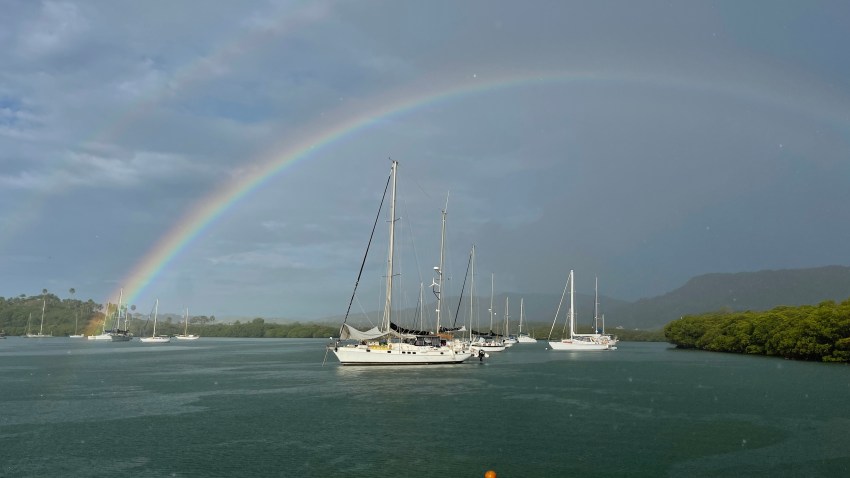
We paddled a kayak through crystal clear mangrove “creeks” abounding in baby and juvenile sea turtles—it turns out that, unlike their massive parents, the little ones move like lightning. When diving, we’ve seen myriads of underwater marvels—giant sea worms, silkily moving sharks, the bird-like motions of mantas and spotted eagle rays, a “cleaning station” set up by a small shrimp where a fish would come to have their scales and gills cleaned by the shrimp, only to depart and let the next fish have their turn. Imagine paying for a car wash with nothing but bacteria.
These moments with nature’s magic have led me to think a lot about the idea of human-made mediated magic, and of its presence, or rather omnipresence, in our modern world. Krista and I recently finished listening to the Harry Potter series on audiobook. It brought us a lot of joy to listen to the entertaining books while floating around in the sea. There’s nothing quite like hearing Dumbledore and Harry amidst breaking waves outside Voldemort’s evil horcrux-holding cave, while sailing on a boat hearing the crashing of real ocean waves on rocks.
But I have also been pondering the crazy popularity of the series, and how it speaks greatly to our modern need for magic. A part of me sees beauty in that longing, but another worries about what it portends. Beautiful because it reveals our human capacity for imagination, for thinking outside of the curse of endless explainability, from our info-transfused Wikipedia-ified world. What happens to imagination when you can get an immediate answer to basically any question you ever have? Our longing for magic may also reveal our ability for stepping outside of ourselves, and hopefully for a potential to accept otherness, something we desperately need in this historical moment.
But our current obsession with magic has I think, like many things, a shadow side. It seems like we are moving towards a culture, at least in the United States, where the only movies made by Hollywood are those full of Marvel or DC superheroes. We have drifted to a culture where our basic (base?) humanness is no longer enough to satisfy the big screen. Perhaps, the mundanity of our conspicuous consumer-ness has left us with a void that demands filling from the outside, from outrageously superheroic acts of heroism impossible for us clumsy humans to achieve. It has left me feeling that we need to relearn how to marvel at our humanness and our natural world, rather than marvel only at our Marvel superheroes.
We’ve been filling that void left by our conspicuous consumption (at least those of us with the means to be conspicuous in our consumption in the world) by consuming more and more narratives of magic, but I think it may ultimately be a negative, and not just a zero sum game. Our insatiable consumption creates an arms race against ourselves, and has left much of the U.S., and other places in the world, in a self-inflicted war of indebtedness and buried in piles of plastics.
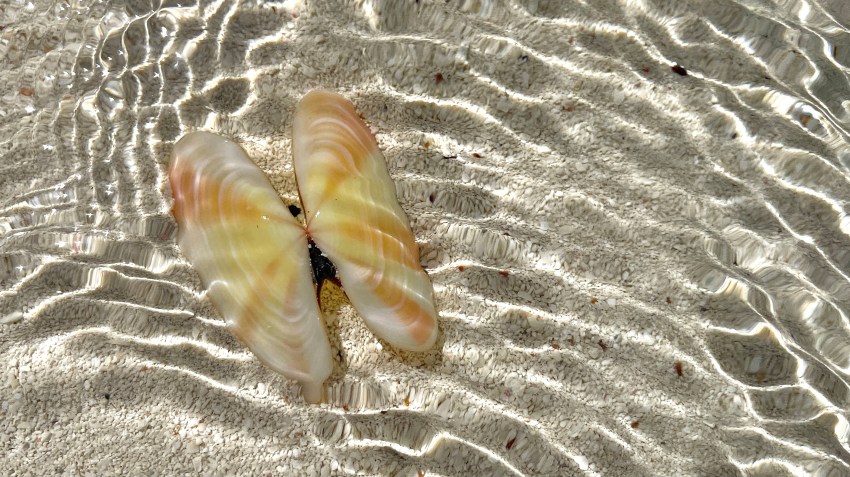
Beyond just regular folks fighting debt and consuming things we don’t need sold by companies that don’t care about us, there’s an even larger and environmentally damaging arms race of consumption happening among the elites. Nowhere is it more apparent than in the multitude of megayachts we have witnessed along our travels, in particular along the coasts of the small islands in the Bahamas. These sea giants, sometimes 300-400 feet long, rivaling cruise ships and costing 100s of millions of dollars, show up at a previously quiet anchorage towing another 50-foot-long powerboat (their “play boat”), and then quickly disgorge even more small boats, jet skis, and other machinery from their stern garages. They tie the offal behind the behemoths in a row so that it looks like a mother goose with her goslings, except with polluting and noisy machines, so not as cute. These 300-400 foot long yachts generally have more serving staff on them than passengers, similar to those 20,000 square foot McMansions with only two residents and rooms never used or seen.
The passengers then proceed to tear around the anchorages as if they owned the world, which I guess in a sense they do (in fact, some whole islands in the Bahamas are owned by one person). These “dei in machinas” create massive amounts of noise, pollution and waves, all the while missing the (formerly) quiet beauty of the magical and multihued Bahamian islands. After blazing around the anchorage, they then quickly leave to find a “better” beach even though pretty much all beaches in the Bahamas are the very definition of perfection. I even heard one of the megayachties complain on one beach that the sand was not “fine” enough—oh nooooooo, what will happen to one’s perfectly pedicured and silky soft feet! The horror!
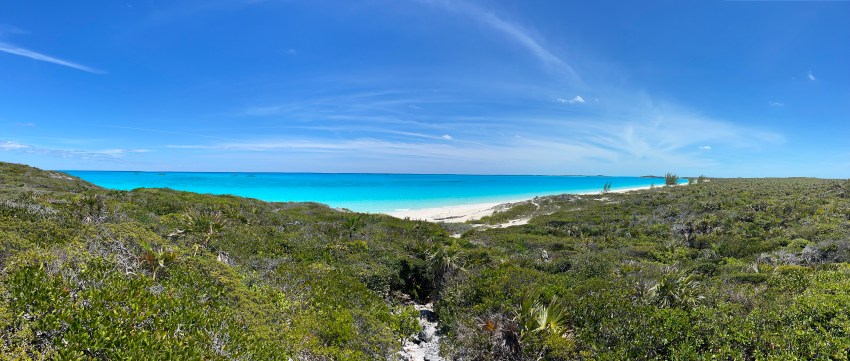
In my less kind moments (after a wave from a jet ski has nearly swamped us rowing our little kayak), I would say that the size of the megayachts are inversely proportional to the depths of owners’ souls. But really I think that the size of the megayachts, and the total number of spewing toys, is more directly proportional to their fear of the void.
Which leads me back to magic. The megayachties magic is in money and machines. And in their conjurations of machines from the bellies of their beasts, I think they miss out on the greatest opportunity that life on the world’s oceans has to offer—the time to live outside of what most would call a “normal life,” the immense gift that silence has to offer for free and with no debt attached, and the opportunity to use that silence to explore deep inside ourselves and wrestle with the void and try to come to peace with it. Essentially to create our own magic out of mundanity.
In our obsession with mediated magic, and its offer of a temporary break from thoughts of the void and of our fear of silence, I think we miss perhaps the greatest gift that our little blue planet offers us. Not food and water (though those are pretty damn important too), but the magic that is literally all around us, and the unmediated awe that descends gratis when we slow down, step into the silence, and look again like children do at the fantasy world in which we live.
One ubiquitous example of nature’s magic comes in one of its smallest packages—the diminutive but powerful pistol shrimp. Only around 1.5 inches in length and less than an ounce in weight, the pistol shrimp moves its claws at more than 60 miles/hour. For this small creature in a small space, the speed is so fast that it creates a vacuum bubble that has such a low pressure that a water pulse emerges with a noise of almost 220 decibels—louder than a bullet, hence the shrimp’s name.
Perhaps more astoundingly, the snap creates a resultant temperature of around 4800 degrees Celcius (around 8600 degrees Fahrenheit)—similar to the surface temp of the sun! It’s all just crazy times infinity. The enormous pressure also creates a visible plasma arc which causes another compression and a flash of light from the sound itself—in a process known by the weighty word sonoluminescence (similar to how lightning and thunder interact). We humans think we have a monopoly on magic in all our Harry Potters and Marvels, but the teeny tiny pistol shrimp begs to differ, or really doesn’t care I guess. It’s just down there in the sea making its magic every day without a care in the world (except for getting eaten).
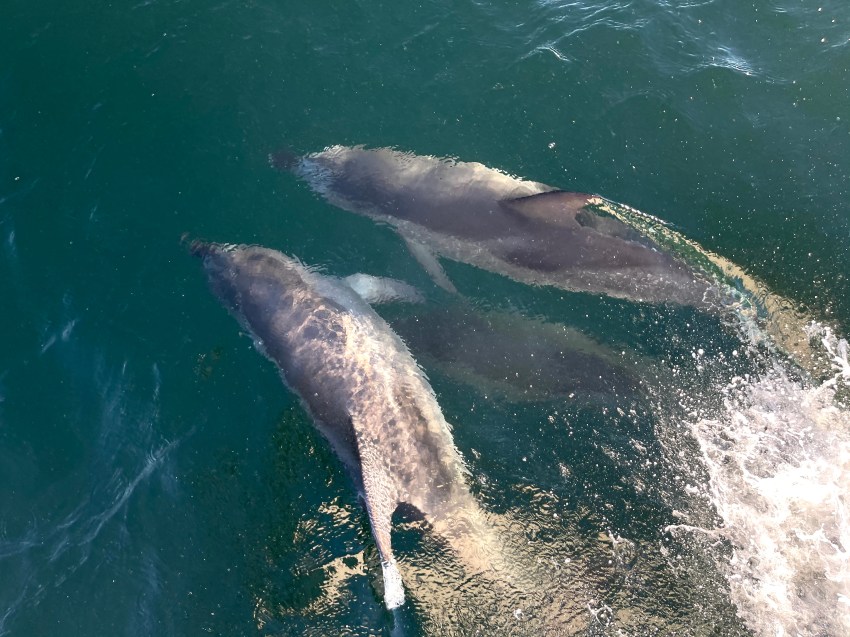
When we are silent, Krista and I hear the snapping sounds of the shrimp under our boat every night and are chock full with wonder. Hollywood has nothing to do with it. And although I love a good superhero movie as much as the next nerd, for me I will take the humble pistol shrimp over the $300 million Marvel movie any night of the week. And when I struggle with stepping into the void, I try to think of the little pistol shrimp snapping away as a constant reminder of the magic all around us all the damn time. And it helps.
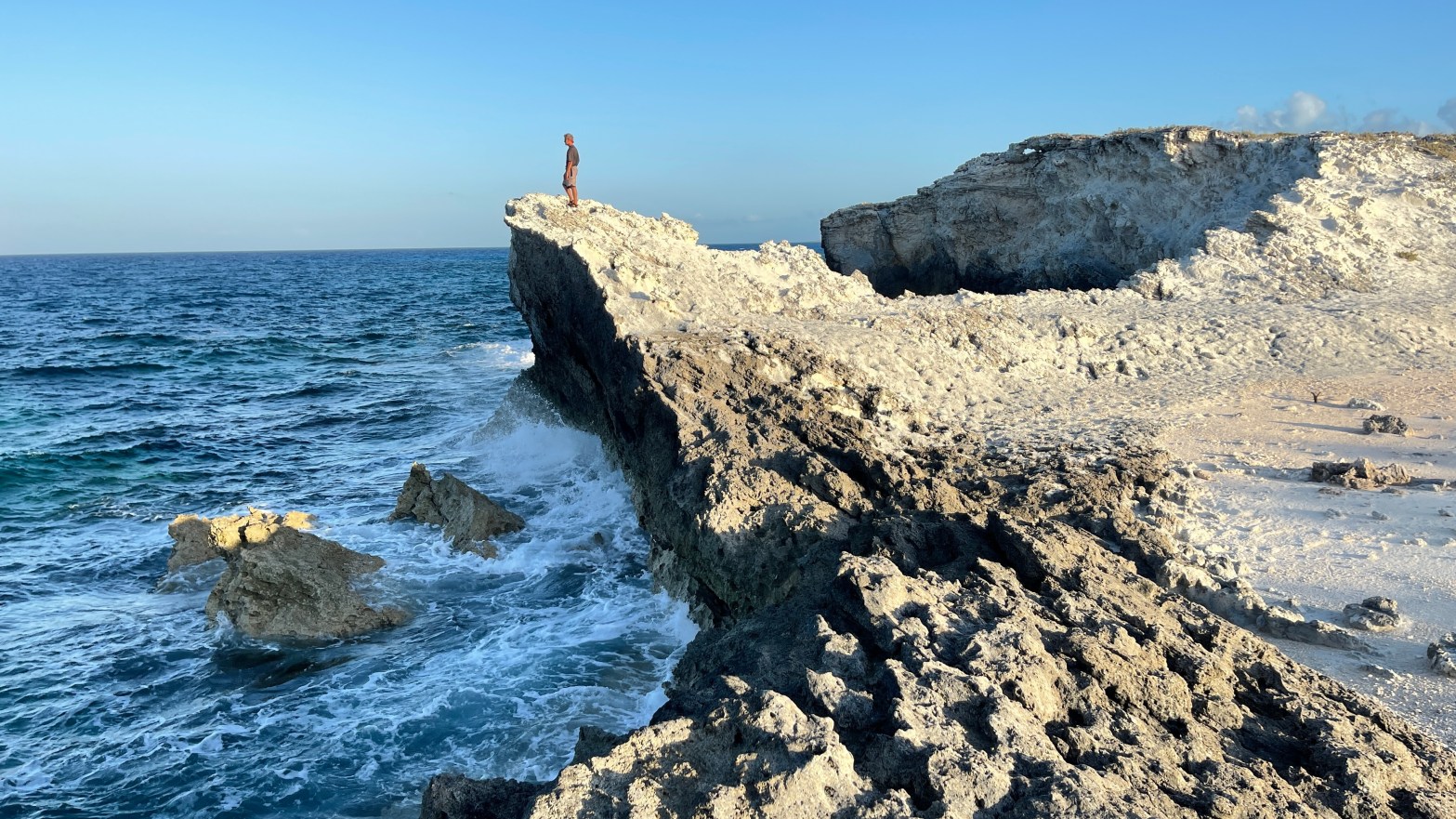
I’m left pretty speechless with this, dear Bill, except to say I was hoping to see it. It’s part of why I say that I love you each and both. In a way, to know you is to partly know Krista and vise-verse. But to know both of you individually and together, is simply mind-blowing. Thank you for doing this and sharing it. I know your mom is overflowing with love and pride, but is not at all surprised at the depth of wisdom, insight and talents that are only a part of you. There’s also your good heart and your love for, support of and appreciation of Krista.
Thank you Maureen/Ma
This is a great read, Bill. Your point about “ordinary humans” not being interesting/exciting/engaging enough for a modern audience is a good one. I, too, love superhero movies, but I would agree that what Thoreau called “The solid earth! the actual world!” makes for a pretty good subject as well.
I have to admit that when I first saw the topic of your post, I thought you were going to say something about magical thinking, which is something else our culture is awfully fond of. Assuming that “someone” will fix our problems, that “technology” will come up with an answer to whatever plagues us, is a bit like our attachment to superheroes. Learning to live within limits and finding joy there is hard when you refuse to acknowledge reality.
I love that you and Krista are finding joy in fireworms and baby turtles, in pistol shrimp and spotted rays, in “The solid earth! the actual world!” Those things are more than enough.
Thank you Susan. Magical thinking is another side of the thing no doubt. Love the Thoreau quote!
I had similar thoughts this morning when a friend who is a great Star Wars fan posted a “Jakku National Park” graphic. So many people are being conditioned to see beautiful landscapes as existing on other planets a Long Time Ago in a Galaxy Far Far Away. But all those stand-ins for desert planets, forest planets, ocean planets and so on are right here on the one, unique, glorious only cradle of life we know of, and they’re neglected at best and often squandered. I think of a quotation (that I cannot now locate) about how Medieval philosophers expected to find a world full of wonders and they were not disappointed.
So true Jackson
Krista – thank you for sharing and thank Bill for writing such an evocative piece. I could sense the wonder, and frustration, as I read his words.